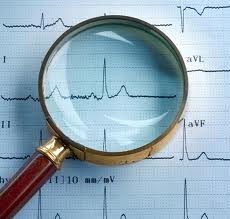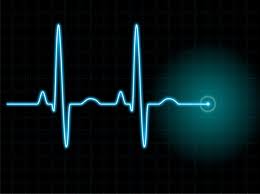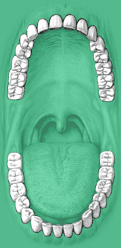⌂Main page › Services › Cardio-Clinic
Cardio-Clinic
Internal medicine, cardiological, and cardiac surgery anesthesiology private clinic
 |
 |
The activities of private surgery:
- Internal medicine, cardiology, cardiac surgery and general anesthesia private practice.
- Treatment and care of heartache, blood pressure and kidney problems, digestive problems, diabetes and its complications. Respiration function’s testing.
- Investigation of surgical interventions before anesthesia before, risk estimation.
- Consultation related to cardiac catheterization, heart surgery consultation, after-care
We welcome those who:
- do not want to be at the end of long waiting lists
- suffering from stomach pain, digestive disorder
- if in the family heart disease, cardiac death occurred
- are exposed to increased stress
- experiencing undue fatigue
- perceive chest pain, fast or messy heartbeat feeling, choking, ankle swelling
- suffering from hypertension, diabetes
- need after-care after heart attack, heart surgery
In these cases, the full cardiac status check could be very important, performing risk screening tests.
Diagnostics:
- patient examination
- EKG
- 24-hour ambulatory blood pressure monitoring (ABPM)
- heart ultrasound (Echocardiographia)
- Respiration function examination (Spirometria)
Heart and vascular diseases:
-
Hypertension
Hypertension (high blood pressure) is a chronic medical condition in which the blood pressure in the arteries is elevated. This requires the heart to work harder than normal to circulate blood through the blood vessels. Blood pressure is summarized by two measurements, systolic and diastolic, which depend on whether the heart muscle is contracting or relaxed between. Normal blood pressure at rest is within the range of 100-140mmHg systolic (top reading) and 60-90mmHg diastolic (bottom reading). High blood pressure is said to be present if it is persistently at or above 140/90 mmHg.
Hypertension is a major risk factor for stroke, heart attacks, heart failure, aneurysms of the arteries, peripheral arterial disease and is a cause of chronic kidney disease. Even moderate elevation of arterial blood pressure is associated with a shortened life expectancy. Dietary and lifestyle changes can improve blood pressure control and decrease the risk of associated health complications, although drug treatment is often necessary in people for whom lifestyle changes prove ineffective or insufficient.
Primary hypertension is the most common form of hypertension, accounting for 90–95% of all cases of hypertension. In almost all contemporary societies, blood pressure rises with aging and the risk of becoming hypertensive in later life is considerable. Hypertension results from a complex interaction of genes and environmental factors. Numerous common genetic variants with small effects on blood pressure have been identified as well as some rare genetic variants with large effects on blood pressure but the genetic basis of hypertension is still poorly understood. Several environmental factors influence blood pressure. Lifestyle factors that lower blood pressure include reduced dietary salt intake, increased consumption of fruits and low fat products, exercise, weight loss and reduced alcohol intake. Stress appears to play a minor role with specific relaxation techniques not supported by the evidence. The possible role of other factors such as caffeine consumption, and vitamin D deficiency are less clear cut.
Secondary hypertension results from an identifiable cause. Renal disease is the most common secondary cause of hypertension. Hypertension can also be caused by endocrine conditions, such as Cushing's syndrome, hyperthyroidism, hypothyroidism, acromegaly, Conn's syndrome or hyperaldosteronism, hyperparathyroidism and pheochromocytoma. Other causes of secondary hypertension include obesity, sleep apnea, pregnancy, coarctation of the aorta, excessive liquorice consumption and certain prescription medicines, herbal remedies and illegal drugs.
-
Coronary heart disease
Coronary heart disease is the narrowing or blockage of the coronary arteries, usually caused by atherosclerosis. Atherosclerosis is the buildup of cholesterol and fatty deposits (plaques) on the inner walls of the arteries. These plaques can restrict blood flow to the heart muscle by physically clogging the artery or by causing abnormal artery tone and function.
Without an adequate blood supply, the heart becomes starved of oxygen and the vital nutrients it needs to work properly. This can cause chest pain called angina. If blood supply to a portion of the heart muscle is cut off entirely, or if the energy demands of the heart become much greater than its blood supply, a heart attack may occur.
Coronary artery disease has a number of well determined risk factors. The most common risk factors include smoking, family history, hypertension, obesity, diabetes, high alcohol consumption, lack of exercise, stress, and hyperlipidemia.
-
Cardiac arrhythmia
Cardiac arrhythmia is the condition in which the heart's normal rhythm is disrupted. The heart pumps blood containing oxygen, nutrients, immune cells, and regulatory molecules to the body organs. The rhythm of the heart is set by a small region of cardiac muscle cells in the right atrium called the sinoatrial node that acts as a spontaneous pacemaker, but is under the control of nerves and circulating hormones that affect the heart rate via a host of control circuits that maintain adequate blood pressure and oxygenation. The heart itself is composed of two upper chambers, the atria, and two lower chambers, the ventricles.
Many things can cause an arrhythmia, including: scarring of heart tissue, changes to your heart's structure, such as from cardiomyopathy, blocked arteries in your heart, high blood pressure, diabetes, overactive thyroid gland, smoking, drinking too much alcohol or caffeine, stress, medications, etc.

Prices:
| Big medical examination (anamnesis, physical examination, ECG, evaluation of laboratory findings, pharmacological and lifestyle suggestions): | 25 € |
| Control examination, short consultation, prescription: | 18 € |
| Cardiac ultrasound examination: | 28 € |
| Respiration function examination: | 18 € |
Package prices:
Basic package: 49 Euro
Patient examination, ECG, Cardiac ultrasound examination
Raised package: 63 Euro
Patient examination, ECG, Cardiac ultrasound examination, Respiration function examination
Manager screening: 104 Euro
Full examination
Doctors:
-
Dr. Késői István
He was graduated at the University of Pécs, Faculty of Medicine, he is practicing for 23 years, and his special fields are internal medicine and cardiology.
-
Dr. Pintér Tünde Ph.D
She is graduated at the University of Pécs, Faculty of Medicine in 1992, she is specialized in internal medicine and cardiology.
-
Dr. Vorobcsuk András Ph.D
He was graduated at the University of Pécs, Faculty of Medicine, then he is working in cardiac surgical anesthesia and intensive therapy and intensive cardiology fields.
Contact:
Tel.: +36-20-515-1117,
emai.: cardio@tourdental.eu




